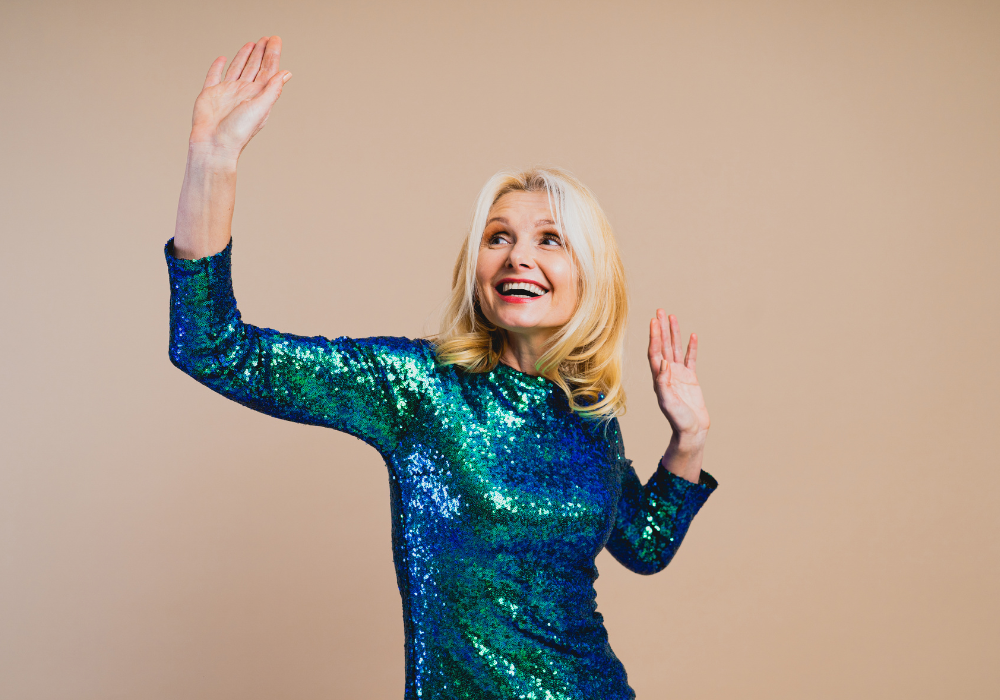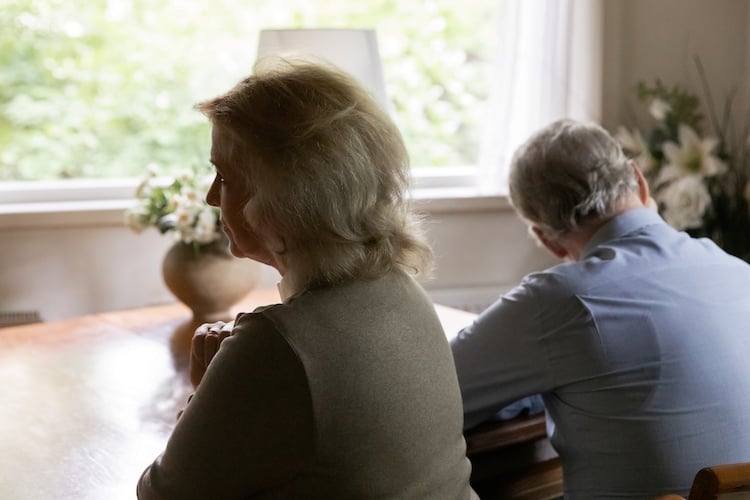Get older with class and confidence by dropping these behaviors.

There’s a certain dignity in aging well, and nothing disrupts that quiet confidence faster than habits that scream insecurity or stubbornness. Getting older isn’t just about collecting years—it’s about refining who you are and letting go of behaviors that don’t reflect your wisdom or experience. Class and grace aren’t about appearances alone; they radiate from how you carry yourself, treat others, and show up in the world.
1. Complaining About Every Little Thing That’s Changed

It’s natural to notice the world evolving in ways that feel unfamiliar or even frustrating. But turning every conversation into a rant about “how things used to be” doesn’t just make you sound outdated—it drives people away. Complaints rarely lead to connection; they create distance. A classy approach is to notice what’s different, maybe even mourn it a little, but then move forward with curiosity and grace.
Being adaptable is one of the clearest signs of inner strength. Choosing to see what’s good about change—even when it’s uncomfortable—demonstrates maturity and optimism. Instead of comparing everything to the past, try embracing what’s in front of you. The future is more enjoyable when you meet it with an open heart instead of a closed mind.
2. Dressing Like You’re Trying to Be 20 Again

Keeping up with trends can be fun, but chasing youth through fashion often backfires. When your clothing screams, “I’m not ready to grow up,” it draws attention to the very thing you’re trying to avoid. True style isn’t about clinging to the past—it’s about understanding who you are today and dressing in a way that flatters that version of yourself.
3. Oversharing on Social Media Like You’re a Teenager

Social media can be a great way to stay connected, but treating it like a diary or validation machine can undermine your poise. Posting every emotional high and low or broadcasting personal drama may feel cathartic in the moment, but it often comes off as attention-seeking or even immature. Less really is more when it comes to sharing online.
4. Ignoring Manners You Used to Swear By

Manners might seem old-fashioned, but they’re timeless indicators of respect and dignity. When you start letting go of basic courtesy—interrupting, speaking over others, or forgetting to say “thank you”—you chip away at the very grace you’ve spent a lifetime cultivating. It’s not about being stiff or formal; it’s about being considerate.
5. Talking Nonstop About Your Aches, Pains, and Doctor Visits

Health concerns come with age, but letting them dominate your conversations can alienate even the most empathetic listeners. There’s a difference between sharing and oversharing—when every interaction turns into a medical update, you stop being seen for who you are and become defined by your ailments.
Instead, try to balance honesty with perspective. A quick mention is fine, but then pivot to something uplifting or engaging.
6. Trying to Outshine Younger Generations

You’ve built a legacy, and that deserves to be celebrated—but constantly competing with younger people for attention, relevance, or admiration can feel desperate. When you’re always trying to prove you’ve “still got it,” it can look like you’re stuck in the past or uncomfortable with your place in the present.
The classy move is to uplift those coming after you. Share your wisdom without expecting applause. Confidence shines when you no longer need the spotlight to feel valuable.
7. Using Slang That’s Way Out of Your Comfort Zone

Language evolves, and it’s great to stay current—but forcing yourself to use slang that doesn’t come naturally can feel disingenuous. When you drop phrases like “slay” or “fire” just to sound cool, it often does the opposite. People can tell when you’re not being authentic, and nothing undermines class faster than trying too hard.
It’s far more appealing to speak in a voice that’s true to you. Use language that reflects your personality and values, not what’s trending on TikTok. That doesn’t mean being stiff or outdated—it means choosing words with intention and confidence. People are drawn to those who know who they are and don’t need to imitate others to feel relevant.
8. Letting Your House Turn Into a Cluttered Museum

Hanging onto every item from your past might seem like a way to preserve memories, but it can end up feeling suffocating—both for you and for anyone who visits. A home that’s overloaded with knick-knacks, outdated furniture, and forgotten relics quickly loses its warmth and becomes a shrine to what was.
Instead, choose to honor your past with intention. Keep meaningful items that spark joy or tell your story, and let go of the rest. A tidy, curated space feels more peaceful and welcoming. Class isn’t about having the newest or most expensive things—it’s about surrounding yourself with what matters most, and knowing when it’s time to let go.
9. Dismissing New Technology As “Not For You”

It’s easy to feel overwhelmed by the pace of technological change, but opting out entirely isn’t the answer. When you proudly declare that tech is “for the kids,” you’re not just limiting your abilities—you’re sending a message that you’ve stopped growing. That’s not graceful aging; it’s avoidance.
You don’t have to become a tech expert, but staying open to learning basic tools can enhance your life in countless ways. From keeping in touch with loved ones to discovering new hobbies or managing your finances, technology can be a bridge—not a barrier. Embracing it with curiosity keeps you relevant, independent, and connected.
10. Playing the “I’ve Earned the Right to Be Rude” Card

There’s a common belief that age entitles you to say whatever’s on your mind, no matter how harsh. But using your years as an excuse for insensitivity doesn’t reflect wisdom—it signals entitlement. True class lies in expressing yourself clearly without causing unnecessary harm.
Kindness never goes out of style. You can speak your truth and hold boundaries while still being respectful and thoughtful. People will remember how you made them feel far more than what you said. And when your words carry warmth instead of sting, your legacy becomes one of grace, not grievance.
11. Hanging Onto Grudges Like They’re Souvenirs

Everyone’s been hurt at some point, but carrying resentment around for years only weighs you down. Holding a grudge doesn’t punish the person who wronged you—it poisons your own peace. As you age, time becomes more precious, and wasting it on bitterness robs you of joy.
Letting go doesn’t mean forgetting or excusing bad behavior—it means choosing your peace over your pride. Forgiveness is a powerful form of self-care. It clears space in your heart for love, connection, and contentment. The most elegant people know that lightness comes not from what they hold onto, but what they release.
12. Refusing to Try Anything New, Ever

Falling into a predictable routine might feel safe, but it can also lead to stagnation. When you stop exploring, stop learning, or stop saying yes to new experiences, you risk becoming rigid and closed-off. That’s not elegance—it’s fear masquerading as comfort.
Staying curious is the ultimate sign of vitality. Whether it’s trying a new dish, traveling to a new place, or simply picking up a new book or hobby, those small leaps keep your spirit alive. A willingness to evolve shows strength, not weakness. Aging with class means choosing adventure over apathy—again and again.
13. Thinking Aging Means You’re “Done”

One of the most dangerous myths about aging is that it signals the end of your relevance, potential, or growth. But the truth is, you’re never done becoming who you are. Believing that your best years are behind you limits your joy and undercuts the power of your presence in the here and now.
Classy aging is about continuing to participate in life fully and authentically. It’s about curiosity, contribution, and self-discovery. Every day is a chance to deepen relationships, learn something new, or leave the world a little better. Growing older with grace means realizing that you’re not finished—you’re just getting started in a whole new way.
